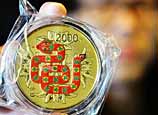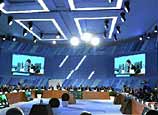
A BANK of England pledge to help London become a global trading center for the yuan has stirred talk of a revival in the city's fortunes, similar to the explosion of the US dollar market in the 1960s and 70s.
In what many bankers saw as a pivotal move, the central bank said last month it was ready "in principle" to adopt a currency swap line with the People's Bank of China, providing a two-way pipe to the city as the still-unconvertible yuan starts to emerge as a world reserve currency.
Britain would become the first major developed economy to install a currency swap line with China, replicating existing arrangements available for the dominant freely-traded currencies such as the dollar, euro and yen.
China has agreed swap lines with more than 15 other countries but these tend to be emerging economies that have natural resources or goods used in manufacturing to export. The list does not include major industrial powers such as the United States, eurozone countries or Japan.
However, in a deliberate push to internationalize the yuan, or renminbi, China has been developing an offshore market for it, as a precursor to allowing global firms, banks and asset managers access to its domestic market.
China plans to make the yuan basically convertible as early as 2015 and eventually put it on a par with the US dollar.
Britain's commitment to a swap line with the world's second biggest economy should boost fledgling trade in the offshore yuan in London, market watchers say, helping it to see off rival yuan centers such as Frankfurt, Paris and New York.

















 A 9-year-old son takes good care of his amputee mother:"adults have a priority over delicious meals"
A 9-year-old son takes good care of his amputee mother:"adults have a priority over delicious meals"


![]()
